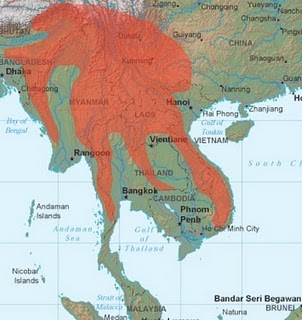
For philosophers, sociologists and historians, freedom is a concept exquisitely defined and heroically distinguished. There are the familiar distinctions like positive and negative liberty (Isaiah Berlin), there is the long tradition of thinking freedom togther with sovereignty, government and arbitrary power (sp. the newly reinvigorated “civic republican” tradition from Machiavelli to Quentin Skinner and Philip Pettit); there is the question of free will and determinism (a core Kantian Antimony that generates both moral philosophy and philosophy of science debates seemingly without end); there is the question of freedom and the mind (the problem of the “contented slave” or the problem Boas raised in arguing that freedom is only subjective); the question of coersion, of autonomy, of equality and of the relationship to liberalism and economic organization. Within each of these domains one can find more and less refined discussions (amongst philosophers and political theorists primarily) oriented towards the refinement of both descriptive and normative presentations of freedom as a concept and as a political ideal. And then there is Sartre.
As I mentioned in the first post, anthropologists have been nearly silent on the problem, while philosophers, political theorists and historians have not. There are shelves and shelves of books in my library with titles like A Theory of Freedom, Dimensions of Freedom, Freedom and Rights, Liberalism and Freedom, Political Freedom, etc. There are readers and edited volumes and special issues of journals to beat the band. In history there is Orlando Patterson and Eric Foner, and a 15 volume series called The Making of Modern Freedom that includes books on Freedom from the medieval era to the present, and includes books on China, Asia, Africa, slavery, migration and fiscal crises (!).
If anthropologists find the concept of freedom distasteful, how then do they organize their concern with things and issues related to what political philosophers or historians approach via freedom? What concepts stand in, challenge or reframe that of freedom? Here is a long list (which could no doubt be longer):
agency, authority, bare life, biopower, biopolitics, citizenship, civil society, colonialism, consent, contract, development, domination, empire, exclusion, governance, governmentality, human rights, humanitarianism, interests, interest theory, in/justice, kingship, neoliberalism, obligation, oppression, precarity, resistance, secularism/secularity, security, social control, sovereignty, suffering, territoriality and violence.
Note that this list concerns terms also familiar to North Atlantic political philosophy, which is to say, this is not a list of “indigenous” or ethnographically derived concepts of/related to freedom. That would constitute yet another distinct question (and a separate post, to follow).
Most of the concepts in that list are closer to the empirical than the theoretical, and I suspect this is why they are preferred to manifestly abstract ideal like freedom. Humanitarianism for instance, has seen a wealth of great work over the last couple of decades for the concrete reason that it is a practice, a domain of law, a set of international economic imperatives as a well as an ideal. Precarity nicely captures a particular economic condition and the effects that has on well-being, etc.
Perhaps most central to the anthropologist’s suspicion around freedom is its inherently individualist bent. Continue reading
